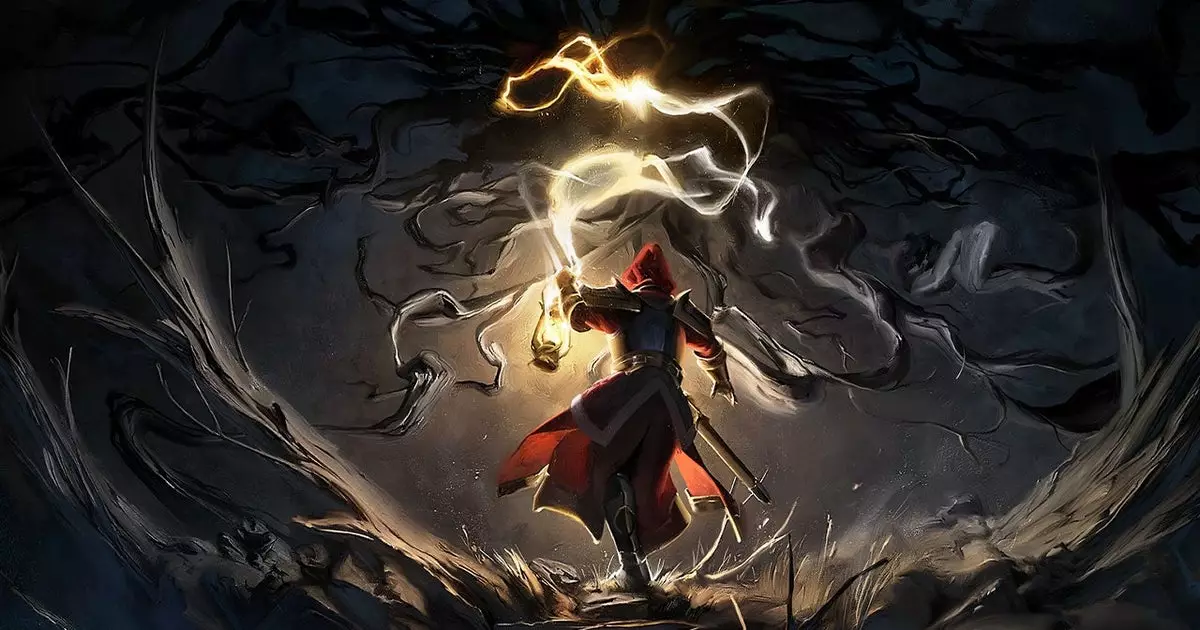In an era where video games are often viewed through a lens of genre comparison, *Mandragora: Whispers of the Witch Tree* emerges with an intriguing dichotomy. At first glance, it could easily blend into the background among other dark fantasy side-scrollers. The visuals suggest a convergence of beloved classics, reminiscent of *Castlevania*’s gothic horror and the intricate storytelling of *Trine*. Despite my initial skepticism—where I feared it was destined to be just another title lost in the sea of indie releases—this game grips tighter than I anticipated. What truly sets it apart is its narrative-driven approach that brews beneath the traditional RPG mechanics.
Unfolding an Intriguing Narrative
As players step into the harrowing world of *Mandragora*, they are greeted with a tale that is rich and densely populated with dread and moral complexities. The story revolves around a malevolent King Priest who reigns over the desolate expanse of Crimson City, seemingly offering a twisted semblance of protection against the “nightspawn.” The premise pulls players into the depths of moral ambivalence, where characters are painted in shades of gray, manipulating the audience’s perception of heroism and villainy. This thematic richness ignites curiosity, elevating the experience beyond mere combat and exploration.
At the center of this dark narrative is a character — a Crimson City inquisitor — tasked with a mission that forces an alliance with a tortured witch. This fateful encounter is not just a quest but a transformative moment that unfolds layers of inner conflict and a pursuit of power tinged with desperation. The story unfolds seamlessly, where every dialogue and voice-over injects life into the otherwise bleak landscape, with NPC interactions that thicken the atmosphere, establishing a world teeming with secrets and character depth.
Gameplay Mechanics: A Balanced Fusion
Diving into the gameplay, *Mandragora* strikes a unique balance between classic action-RPG elements and the complexity that modern gamers expect. Players have a repertoire of combat techniques at their disposal: a primary weapon paired with spells or shields, all while navigating a world richly imbued with exploration opportunities. The emphasis on stamina management and evasion is robust, echoing the intensity seen in *Dark Souls* while remaining accessible to newcomers.
While some may find animations a bit unpolished or controls somewhat sluggish, these imperfections only add to the game’s character, mirroring the rawness of its artistic direction. What truly captivates me are the levels themselves. They stretch and coil like dark veins, riddled with hidden paths and treacherous terrain. The strategic design encourages exploration and experimentation, leading to a sense of accomplishment that transcends mere completion of objectives.
Aesthetics and Artistic Expression
Visually, *Mandragora* is a feast for the eyes, characterized by its oil painting-like character designs that exhibit an eerie beauty. Critics have pointed to these artistic choices as divisive, yet they anchor the game in a distinctive atmosphere. Each character portrait oozes personality and evokes intrigue, urging players to engage deeper with their plight. Moreover, the narrative intertwines seamlessly with gameplay, providing moments where even mundane interactions have character-driven undertones — a smashing of crates igniting tension between characters, transforming simple actions into significant encounters.
The Depths of Narrative Connection
Unlike many games that prioritize mechanics above storytelling, *Mandragora* challenges this notion by embracing its narrative core. There are instances where gameplay becomes a vehicle for character development rather than just an action sequence. This level of engagement makes the player not merely a participant in the world but a crucial component of its unfolding story. As I explored the inaugural hours of gameplay, I found myself more invested in the journey of my inquisitor than in the mechanics or the loot—a testament to the power of rich storytelling in gaming.
The immersive world of *Mandragora: Whispers of the Witch Tree* presents itself as a strong competitor within the dark fantasy genre. Its engaging narrative, coupled with intricate gameplay elements, offers a window into a richly crafted universe that deserves attention. What initially appeared to be a routine side-scroller has transformed into a promising adventure, filled with potential and allure.


Leave a Reply